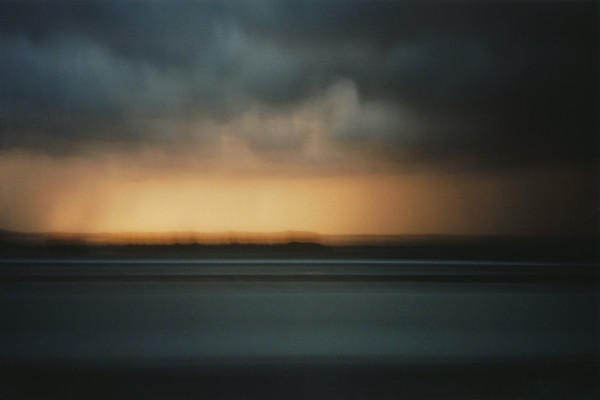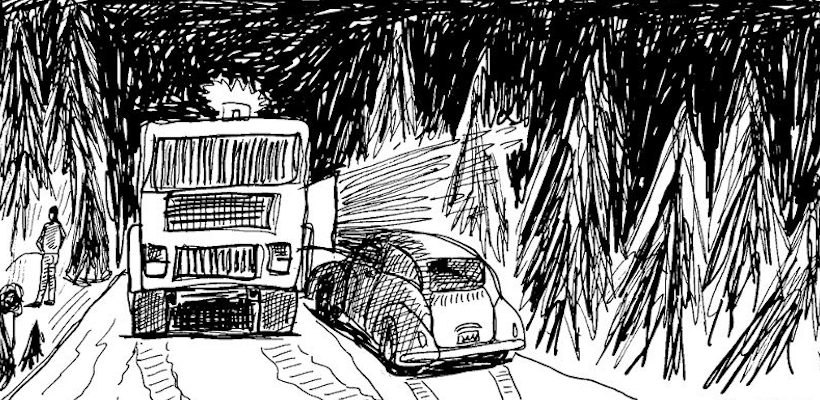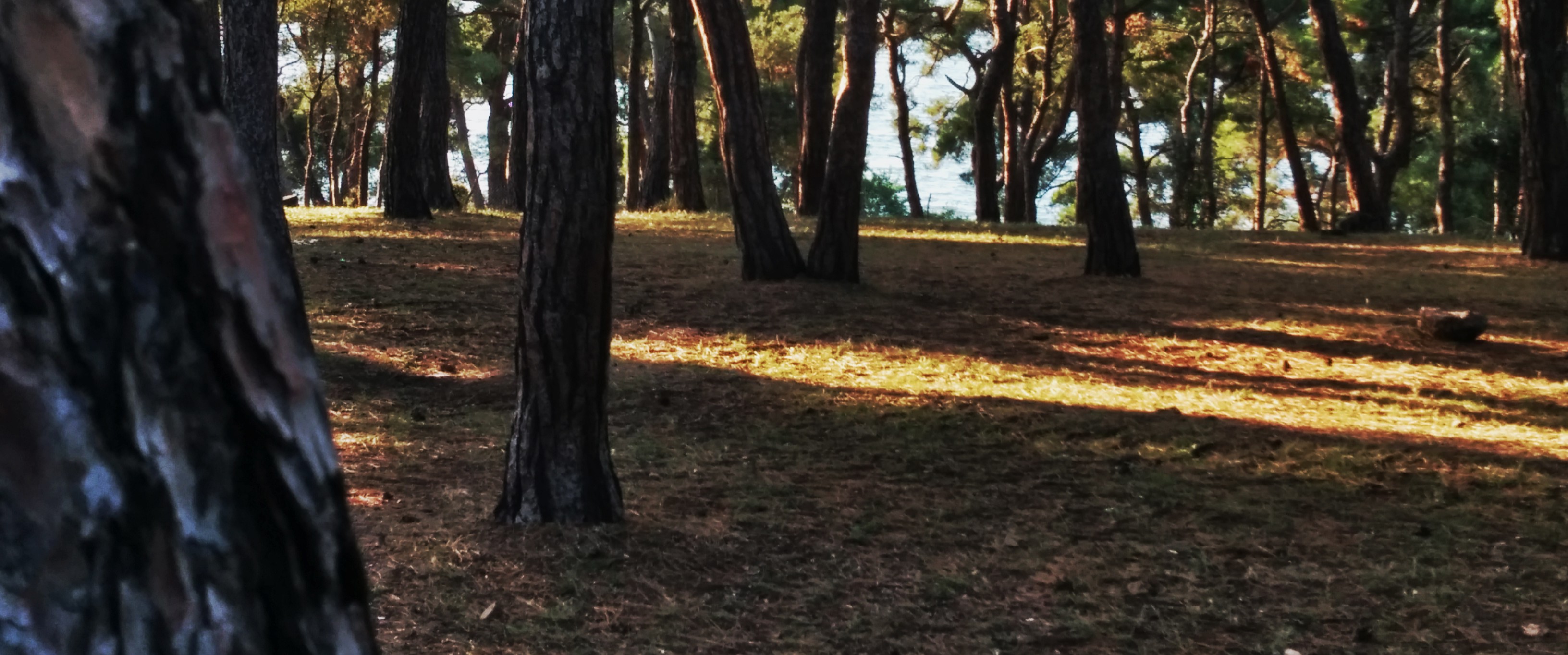A Reason for White River
-to my deceased father
The ramp wrapped like a ribbon. It looped round to where a local road ran perpendicular to it. At this T-junction a sign said White River. And there were choices for this white river. Two arrows pointed in opposite directions, one to the left and one to the right. It would be three miles either way. I took the right and meandered into a hamlet. Down from the grassy hillsides of Vermont, I reached a hidden location reflecting a life I used to know.
There are places we can reach in no other way than by sensing. This happened quite a lot in ancient Japan. In ancient Japan, it could be that a master of haiku set out to do what is known as a ginko walk, which is to say he allowed his body to go freely across the surface of earth – to see what presents itself for a poem. What was found came often without expectation. I know about this way of creating because of my own walks for words. I know when roaming, the earth opens in ways you have to follow. It could be the sun through the trees or it could be successive waves of blowing grass, that offer revelations not readily explained. Just to say there is no feeling as assuring. Walking in silence, one connects to what appears.
In the hamlet known as White River, I saw no water. What I happened upon was an Information Center blocked by a train. My car stopped before the crossbars and blinking signals, while the train sat on a section of track that cars needed to cross. I could see its long length bending round to where the horizon is born. I solved my predicament by pulling into a gravel lot. Stepping from my vehicle, I stretched in front of the giant ironclad beast.
That’s when you came to mind. Those few years I had, the privilege of, being your daughter…. I started to recall mornings of your leaving to work at the rail yard, where you drove cargo trains like this one I was standing beside. In a replay, I saw you walking out of the house carrying a tin briefcase, disappearing across the lawn, then fading, into memory again.
An autumn night – / don’t think your life / didn’t matter. Here’s a poem by Matsuo Basho, a Japanese haiku master of the 1600s. He wrote this three line haiku in memory of his own deceased relative – his nephew’s wife. His poetic life first blossomed in the village of Edo, where a group of young men came to study with him. One of his students built for him a small house near the River Sumida. After, another gave him the gift of a banana tree – a species known as basho – that he was pleased by, and so started writing under the name. Although a burgeoning poet and teacher, he changed in his forties and set out to follow a timeless map, to become a hyohakush, someone who moves without direction. He discovered what I also discovered. That being, the outer world reflects the interior self. For a wanderer, each journey can be a voyage for inner discovery, to learn of the self by how one sees.
So coming off the interstate I happened into this valley all aglow by the unobstructed sun. Its name: White River. All lit up by a sun, White River was. Except it was minus people; no one was around on this bright Sunday afternoon. In fact, any moment I suspected a lone tumble weed to come rolling around a corner, blowing across the barren street. Still I did a slow 360 to check what might be there. Pivoting, like turning back through time, I noticed an inn with a sign that said vacant. I saw a corner store with an emblem of an old steam engine above its wooden door. Other buildings – old, of red brick – reminded me of those along wharfs, set against rivers, in other New England towns I knew. Like Portland, Maine…. Completing my 360, I spotted a retired steam engine as an outdoor museum piece.
Three colors splashed across the locomotive’s side: streaks of red, blue and steely-gray. High up, an engineer peered out the small window. His elbow was propped on the ledge, jutting out. He was the only one I’d set my eyes upon since entering the sun-filled valley. What happened next was not planned. I felt a sudden urge…. Hey! I shouted. My father drove trains! And the engineer smiled. Then he must have gotten an urge, because he shouted something hard to believe. He yelled down to come up. He asked: You want a ride?
Next thing I knew my body started walking. I felt a kind of elation spread all through my limbs, igniting my course. My feet, every muscle was moving with joy. The corners of my mouth shot up, into a smile. Even the sun’s yellow arrowed down, around my life, lighting my world. I was heading towards the engine’s metal ladder. Then climbed the rungs to where the engineer stood. His hand went out to help me onto the platform. When I stood where he was, the moment had no words. Our eyes reflected common ground. Like we were doing this for you. Like I was given a chance to walk into your former life, as it once was.
So he opened a latched door and we ducked inside to enter the cab. I saw a switchboard and a few chairs, that was all. The chairs were black and old, the kind that swivel. I took the one on the left. The engineer sat behind the switchboard on the right. He began pulling levers. They gave off a pissing sound. I’m filling the cars with air, he said. And I thought it meant he was oxygenating them. But he said no, it had to do with filling the brakes with the stuff we breathe. I told him how grateful I was, especially since I had spent the past month writing of your railroad days. Just finished the story, I added. It’s on the front seat of my car. Privately, I was mystified over the coincidence, of getting the chance to experience the very thing I had written of.
Each day is a journey, and the journey itself home, Basho wrote in the first entry of his travel journal. It was a journal he filled with poems and impressions that later became a literary masterpiece. Its title is translated to mean The Narrow Road to the Interior, or sometimes you see it as Narrow Road to a Far Province. Although frail, he covered twelve-hundred miles, mostly on foot, all through the lowlands and uplands in northern Honshu Island. All through the mountains and along the shores of the Sea of Japan, he walked in straw-and-cotton sandals, carrying only a backpack with writing materials and some clothing. Shedding his possessions he came into another kind of wealth. Sensing himself as a windblown cloud, Basho transcended attachment. Setting off, the world became his material. All the ground and the objects of sky, the weather…. It is a state of mind not outside of my own – although I did not know of Basho when, in my thirties, I gave up my apartment and set off to write. It’s like this, I wrote at the start of my own travels. In giving up, I am given what is needed most. I am not sure why expanse comes to one by way of lack. I only know the world came alive when I gave up owning things. It is the same with wild flowers, I wrote. Now I cannot take violets from grasses to make bouquets…. My mind receives them from a distance and their beauty is more striking.
Basho wrote: Midfield, / attached to nothing, / the skylark singing.
The engineer’s name was Derek. The train we were in had no first name as far as I could tell. In any case, it inched along instead of snaking. It kept moving forward then back very slow, to link with cars on the different side rails. There were round tank cars with petrol. There were the red boxcars with crates of things I knew not of. At one point Derek picked up an old black receiver and spoke to the brakeman hanging off the last car. He was the one building the train. After, he turned to ask if I wanted my window open. I said okay so he came to release the catch. The window slid back and I leaned out like the engineers do. My arm was bent on the sill; my elbow jutted out. On the ground, I spotted a guy taking pictures. He was the first pedestrian I noted. He stood alone, on the side of the visitor’s center – as a tourist perhaps or merely a passerby. I smiled down and caught his surprised look. Seemed to me he wondered about the goings-on in the engine. His face kept saying it. His expression read: what’s a woman doing up there!
Derek was wearing a green fisherman’s hat instead of a railroad cap made with cotton ticking. I joked that he was breaking tradition and asked if engineer’s ever wear the kind with the stripes. He laughed too but even so, I sensed some form of nostalgia stirring. I knew by the way his body communicated a distant look. His head turned toward the window. His blue eyes went far off like he was viewing a good thing gone by.
So we were talking of trains like you once did with your brothers who were all railroaders. We were using some railroad jargon that led to a discussion of shift work and other memories I recalled. As I recall there were only three schedules. A railroader could work from 7:00 in the morning to 3:00; or afternoons from 4:00 to 11:00. Night shifts began 11:30 and ran to dawn. Back then, a railroader’s hours kept changing because of the bidding and bumping for jobs – which Derek mentioned they no longer do. He shared he used to work nights but now its days from 7:00 to 7:00. When I asked about the term Gandy Dancers, he said it came about because of the way it looked when the workers went hopping from tie to tie. Then I asked about railroad poetry, if he knew of such a thing. Because, I said, my father would make poetry on the spot. I shared how you signaled to the brakeman through haiku – and how, recently, I learned of this from a friend of the family. Derek didn’t know of railroad poetry but he admired the idea. He mentioned there was definitely a rhythm to giving signals. There was a certain musicality about a moving train, the way its iron wheels clacked along the tracks. After, he started to mess with the levers again. And the switches, he was flicking those too. He clanged an old bell painted red. It was planted on the engine’s forehead there between its window eyes. He adjusted the engine’s throttle. Then the yardmaster called in on the radio – from a place unknown, a tower or station nearby. Through it all, I was absorbing each moment. It was a day in the life of…. It was my day in the life of a locomotive engineer.
A traveler – / Let my name be thus known – / This autumnal shower. Basho.
I’m not sure what happens to the inner world of an engineer while they are driving a train, but I do know sojourning is more than placing one foot in front of the other. While the body leads through the physical world, it is the mind in motion that grasps life…. The mind ascends to where it can see clearly, down upon things. Yet to reach this height one must often go it alone. You can’t really penetrate the essence of things if you are chatting away, or if you are thinking about a 3:00 o’clock appointment, or anything outside the very moment that you are in. So there is this paradox of detaching from the world to learn of it. This is what I discovered. Basho did too. He also knew the state of melancholy that befalls a wanderer at different points along the way. I sit quietly in the evening waiting for the moon so I may have a shadow for company, or light a lamp and discuss right or wrong with my silhouette, he wrote.
In fact, Basho was one of the first to define this state of aloneness as being the very force that would bring one into wisdom about life. He called it sabi wabi – which has to do with sensing beauty through states of suffering, or some form of difficulty that would then call attention to it. Even for Basho, who set out to turn beauty into verse, traveling alone could bring hardship: But when all has been said, I am not really the kind who is so completely enamored of solitude that he must hide every trace of himself away in the mountains and wilds.
We moved up. We went back a little. We did this moving forwards and backwards by fours. I was not sure if the four meant yards or another unit of measurement. The brakeman is new, Derek started to say. We’re supposed to have this train out of here by now. We need to be back by 6:00 tonight. That’s when I learned they were rigging together thirty-some cars. He showed me a switch list that told what each car contained. The train idled before he moved it up four so the tracks could be switched. Then back four to hitch with cars on different side rails. He said to me: Come here, look out my side! So I moved behind him to peer out his window. There, where the train curved around a bend, hanging onto the end was the brakeman. He wore a bright orange T-shirt overlaid with beige overalls – the kind Grandfather had worn in blue. It was obvious the neon shirt was for safety, so that he was visible hopping on and off. And he was. I mean he was very visible, undeniably so. That was the other thing that bothered Derek. And we’re also running behind because this guy is overweight! In truth – and I hate to say it – he did seem like a balloon tethered back there. He was getting ready to jump off soon as the cars linked. He would then add the safety hook. Derek would oxygenate the car; the air would pissssss into the brakes again. The yard would grow quiet after. The town would still seem vacant. Then Derek would move ahead four. The routine would start over….
And yet, when the train did head out, finally…. Derek might enter the mind-set of a wanderer. It could be, because as I imagine it, a running train was like roaming. If he let his thoughts go, he would certainly sense a free feeling. Then the landscape would share something of itself. He would absorb sites instead of merely passing them. His mind would naturally enter its own mode of travel. What he witnessed might transmit realizations. If his heart was open, it would link with the land. A magical connection would be made to move his own life forward. It could happen. It could. After all, it just happened to me while driving north. Stopping here was actually solving questions I still had of my railroad story. You see, I couldn’t conjure the inside of an engine or how the tracks switched or where the brakeman stood when you signaled by way of haiku. These were the issues that mysteriously led to this locomotive. Only I didn’t know that would happen when I set off. I had no notion the exit I felt driven to take, would lead to this coincidence. Seems, you can’t plan what you come upon. You can only be open to receiving a place. That’s more the way of a wanderer. It’s the taking of certain roads that becomes a road of life.
So here are some thoughts from my journal the year I let go of belongings, beginning December of 1992. I wrote: The largest hurdle is the elimination of fear. I wrote: The way we move – with ourselves and others – has reason. On March 25th I came into this understanding: During these times when I feel inadequate and small, there is much that is shown. Before I left my apartment on June 25th: It seems too hard. What to leave behind, where to leave what’s behind, and where to go from here. And of the silence I needed to keep assured, I wrote on July 26th: I don’t want to talk out loud about my journey. If I say too much out loud, then nothing can stir inside. August 2, 1993: Each place I go, each stopping point, offers a teaching. Still, there is no need to mourn when it is time to move on.
Derek was driving, moving ahead four for the final time. I was peering out my own window. The baffled man, the one with the camera, was still on the side of the visitor center. He had been waiting so patiently for the train to head out. We’ll have to stop here and let you down, Derek said. And he started with safety tips, like how not to bump your head when exiting the low door. He modeled how to debark by going down the ladder backwards and slow. He did it first and then watched me. We crossed in front of the engine, and then a side rail which had a soiled carpet underneath. The cars spill grease, he said, so the carpet is for the railroaders to wipe their shoes. When we parted he simply stood facing me. Facing him, I did not know how to thank according to how I felt. What happened in White River had a dream-like quality. As with dreams, it was hard to put into words. So standing there, I flung my hand out to shake good-bye. Then he clasped my hand. Then I went and flung my other on top of his. And so, we were three hands shaking. We stayed like that before I turned to leave.
I’ve worn out my body in journeys that are as aimless as the winds and clouds and expended my feelings on flowers and birds. But somehow I’ve been able to make a living this way…. Basho.
So I got in my white Ford and rode from White River. And took the three miles to the freeway, and merged onto Interstate 81, heading north. And drove until I couldn’t move as everything had backed up in a traffic jam…. There were cars, motorcycles, trucks that had come to a standstill. There had been a serious accident ahead. In the long wait, people began mingling in the middle of 81. I struck a conversation with an elderly man who was a native of Vermont. What do you know of White River? I asked. Oh, he said, that’s a railroad town. To which I asked if railroaders lived there. He answered: It’s where they do their loading. A railroading town. One of the few left in the world. Three miles off of Interstate 81. That’s White River.
But if I could rename it, I’d call it The Place I Felt Led To. Or I’d call it The Place My Unseen Father Led Me. For it did feel like that, very much so. Although I do not write haiku, there is one I include on the first page of each journal I start. I’ve done this ever since the anonymous verse came my way. The small poem is simply this: Broken and broken again /on the sea the moon /so easily mends. To me, it speaks of pathways. Literally, it tells what happens when the moon casts a road of white on water. But also, it reminds that a road of light repairs itself.
It has long been a tradition that a master writes a final haiku on his/her deathbed. Two days before his death, Basho gave this poem to the world: On a journey, ailing – /My dreams roam about / Over a withered moor. Interesting that Basho’s dreams wander as if venturing out of his ill body. They carry on without him, over frail terrain. I think it may have been the same for you, when your own life was cut short by brain damage. Suddenly, at the early age of forty-nine – which happens to be Basho’s age when he died. Yes, I do believe that dreams continue after the life of a person, into places the person can no longer be. And that the living can sense these remnants that were cast. Where they go, I have gone also. These are the roads I have happened upon or crisscrossed with. Somehow, someway, now, again…. They are byways with a purpose – those I feel driven towards and there sense traces of you.
—
Therése Halscheid’s recent book Frozen Latitudes (Press 53), won the Eric Hoffer Book Award, Honorable Mention for Poetry. Other collections include Uncommon Geography, Without Home, and a Greatest Hits chapbook award. Poems and essays have appeared in The Gettysburg Review, Tampa Review, Sou’wester, Natural Bridge, among others. Recent awards include first place in Welcome Table Press’s 2015 Creative Nonfiction contest. By way of house-sitting she has been writing on the road for several years. Her photography chronicles her journey, and has been in juried shows. Poems in Frozen Latitudes recount her time in the Arctic north of Alaska, where she lived with and taught an Eskimo Inupiaq tribe. See www.ThereseHalscheid.com.
“A Reason for White River” first appeared in Hotel Amerika.




